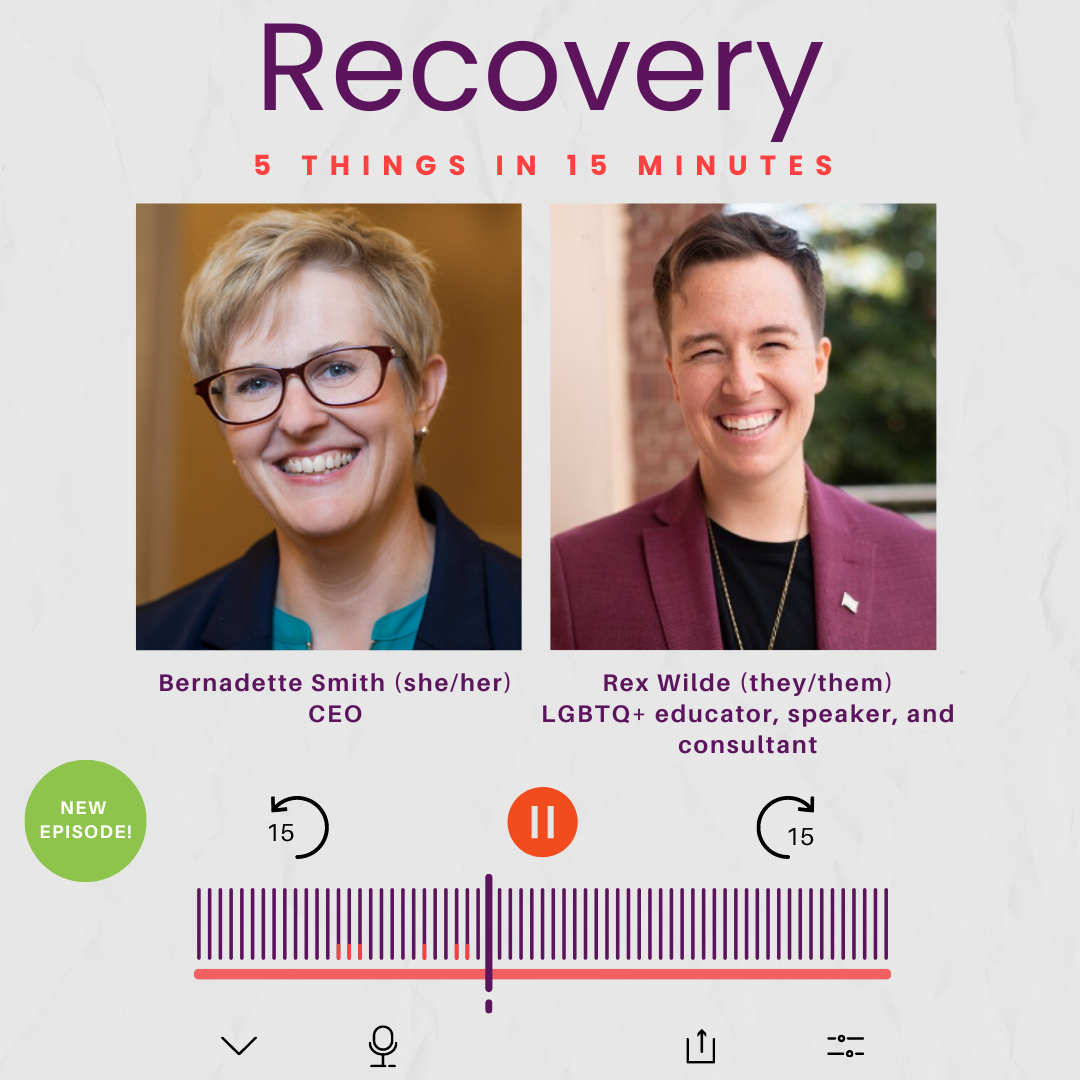5 Things / Recovery
There was a recurring theme this week in my conversations with clients: how to recover after you’ve been called out or accidentally offended someone. Here’s the short answer: don't get dramatic. Apologize sincerely once without diminishing their experience. If you’re corrected, say thanks. Educate yourself, rather than asking them, so you can do better next time.
During an in-person keynote for a corporate client, I was asked a question that took the topic a step further. I was asked, “How much responsibility do I need to continue to take after I’ve offended someone when, after my sincere apology, they remain angry and/or aggressive?”
Here are a couple of guidelines: Remember you don’t know what it’s like to walk in their shoes and it’s a good idea to acknowledge that when speaking with the person. And, after an appropriate period of time, it’s OK to ask, “Is there anything I can do to repair this relationship?”
Here are the good vibes I found this week:
Disabled Models and Designers Take Center Stage at New York Fashion Week
Stylish adaptive fashion for people with disabilities was on display at New York Fashion Week this year. For the first time, there was an entire runway show, Double Take, dedicated to these styles and featuring models with disabilities. 80% of the designs were also made by designers with disabilities. I love this because it amplifies the visibility of these models with disabilities and normalizes their right to have beautiful, stylish clothes.
Hearst Joins Employers Expanding Benefits to Include Divorce Support
A small handful of companies including Hearst are now offering divorce support as an employee benefit. They now provide employees access to an app called SupportPay that helps divorced manage financial obligations and custodial (if there are children) schedules. As someone who is divorced, I can attest to the emotional and financial challenges I experienced, and I’m a big fan of using technology to better care for your employees.
Twilio Promises ‘Anti-racist’ Layoffs as Ceo Says 11% Job Cuts Won’t Hit Workers From ‘Marginalized Communities’ More Than Others
Like many tech companies recently, Twilio announced layoffs, but committed to an antiracist layoff process. In their statement, Twilio acknowledged that layoffs generally disproportionately affect those in marginalized communities, but wasn’t specific about how they applied an antiracist and anti-oppression lens to the process. This matters because layoffs can be riddled with unconscious biases such as affinity bias and confirmation bias, and a “last hired, first fired” approach can contribute to marginalized folks losing their job.
Hot Chicken Takeover’s Mission Is to Hire People Who Might Be Passed Over Elsewhere, Whether Because of Prior Incarceration, Drug Addiction, or Homelessness
The restaurant chain Hot Chicken Takeover has an employee-first approach to hiring and retention, starting with a commitment to hiring formerly incarcerated people. Nearly 40% of its employees come from the justice system. Many others are formerly homeless. The company also provides employees with emergency cash assistance and a savings-matching program, benefits not often available to front-line employees. This matters because formerly incarcerated people are unemployed at 5x the general population, and due to lots of kinds of systemic racism, these folks are disproportionately BIPOC.
Interior Department Completes Removal of “Sq___” from Federal Use
The U.S. government completed the removal of ~650 geographic locations that were previously named with a racist and misogynistic slur for a Native American woman. Lakes, streams, and other geographical features on federal lands are now renamed with a descriptor or Indigenous language terms, such as Echo Peak, Texas, and Pannaite Naokwaide, Wyoming. The renaming process was complex, involving federal, state, and Tribal jurisdictions. This matters because it shows intolerance for racism and a commitment to inclusion.
Listen here:
Watch here:

